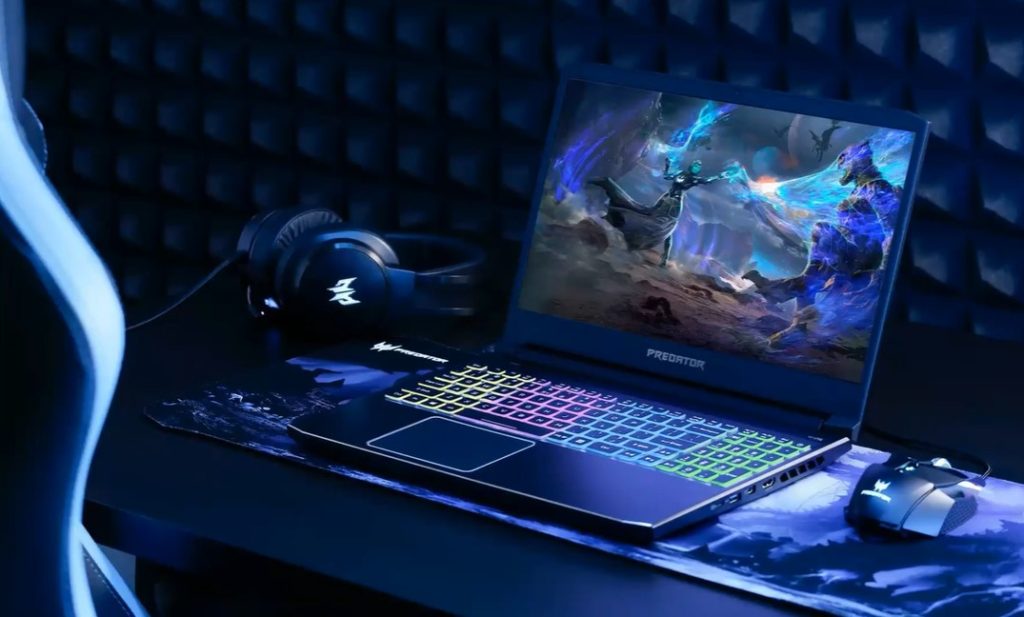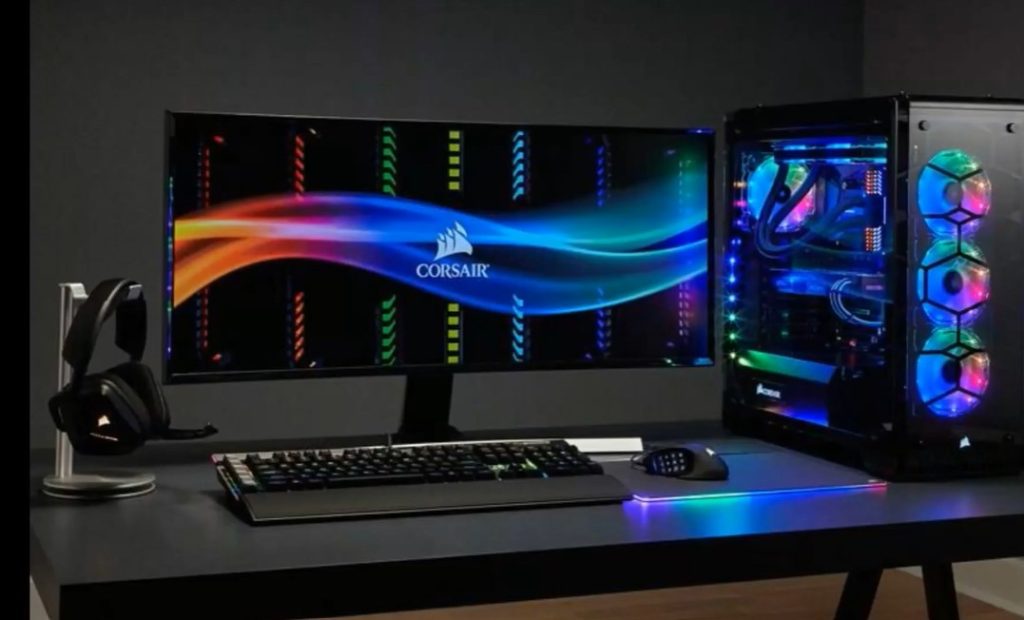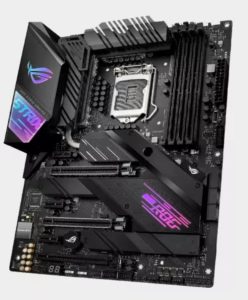Even since gaming laptops were first introduced, there has been a long-lasting debate about the major differences and comparison of gaming laptops with pre-built or custom made gaming desktops. And now that gaming laptops are becoming more and more powerful every day, the controversy is getting more and more intense as a lot of users seem to prefer a gaming laptop over the hassle of buying all the parts separately and assembling a gaming desktop.
Today, we will try to answer this question for you. Here, we are going to compare both options thoroughly and make sure that you can grasp the basics of the comparison. We will also provide some pros and cons for both types of gaming systems, along with some major aspects that make all the difference for both options. Therefore, make sure you stick until the end to make a better choice.
1. Gaming Laptop
Gaming laptops, as the name suggests, are special laptops that are designed to primarily serve the needs of a gamer. Hence, they are designed to offer enjoyable frame rates on a high-quality game along with a high refresh rate display. Gaming laptops, while being considerably more heavy and bulky than standard laptops, are still way much more portable compared to a desktop setup.
Right now, you can find a variety of gaming laptops in the market designed by various popular manufacturers such as Dell, Lenovo, Asus, MSI and many more. As gaming laptops have become so popular, almost all brands have a dedicated series of laptops specifically designed for gaming which narrows down the choices. If you are interested in gaming laptops, let’s take a look at some of the pros and cons of buying a laptop for gaming.
Pros of Gaming Laptop
- First and foremost, gaming laptops offer a portable form factor that is suitable for outdoor gaming.
- Gaming laptops are readily available in the market, and you can easily choose the one which offers the specifications that you desire.
- The new generation of gaming laptops offers the best processors and graphic cards to offer a desktop level of performance in a portable form factor.
- Various payment schemes and offers are available on gaming laptops as they are available as a single unit.
Cons of Gaming Laptop
- High powered components generate more heat, which is a big problem for gaming laptops.
- Components installed on budget gaming laptops have a comparatively lower TDP, which significantly lowers the performance compared to desktop alternatives.
- Gaming laptops need to be plugged in while gaming to offer the best performance, making it equivalent to a desktop if you are using it indoors.
- To offer portability, gaming laptops have a compact display which hampers the gaming experience by a huge margin compared to gaming on a monitor or a TV.
2. Desktop
Desktop gaming systems have been the primary choice for millions of gamers around the world for decades now. There are 2 types of desktop gaming systems in the industry that are pre-built systems and custom made systems. Pre-built systems are basically all-inclusive cabinets that consist of everything that you need for gaming, such as RAM, CPU, GPU, processor, etc.
Custom build systems, on the other hand, are basically self-made units that you need to assemble after getting the parts separately. Desktop systems have always allowed gamers to unleash their creativity by offering a lot of room for future upgrades and customisations. Hence, you can create your own gaming rig by going with desktop systems. Here are some pros and cons for gaming desktops.
Pros of Gaming Desktop
- You can select the best components in your budget and also prioritise the components that you want for a desirable performance.
- The performance of a gaming desktop is pretty much top of the line based on your system, and you can even find it on par with some gaming consoles and high budget gaming laptops.
- Upgradeability is probably the strongest suit of gaming desktops as it allows you to keep upgrading the system with new generations of components whenever you want.
- You can install highly efficient liquid cooling systems or cooling fans in your cabinet to boost your computer’s performance.
Cons of Gaming Desktop
- Availability of the parts can be an issue sometimes, and you might have to wait a long time to gather the best parts for your system.
- A gaming desktop can only be used indoors and requires a powerful power supply, which also consumes more electricity and results in higher running costs.
- Choosing the right parts is very crucial for making a custom build gaming desktop. You will definitely require a lot of research while building the PC if it is your first time doing so.
- There are little to no payment schemes available for building a custom gaming desktop, and you will either have to wait for the parts or buy all the parts at once.
How Do Gaming Laptops and Desktops Differ?
After reading the pros and cons of both gaming laptops and desktops, you have probably figured out which system is best suited for you. If you wish to get a deeper comparison within both options, kindly follow through the next section of our guide.
There are a lot of factors that require your attention while choosing one system over the other. Even if you have already decided which system you are going to get, focusing on these parameters will allow you to make the right choice within the variety of options available in the market.
1. Portability
Portability is the strongest suit of a gaming laptop. Just the fact that you can pack your gaming laptop along with all peripherals in a bag and travel with it is pretty astounding. Though gaming laptops are infamous for being bulky and heavy, you can also take a look at gaming laptops powered by APUs that are even more portable, but with reduced gaming performance.
Portability is not a factor for desktop gaming systems. Even if you build the most compact desktop gaming system, it will still require an AC port to even turn on. Thus, you should only choose a gaming desktop if you are planning indoor gaming sessions.
2. Performance
Performance has been a problem for gaming laptops for quite some time now. Because of the small form factor of a laptop, gaming laptops have smaller components with congested internal design. Hence, the performance available on a gaming laptop is always a bit lower than a desktop in the same budget.
Gaming desktops are mostly preferred by gamers because of their high performance. As gaming desktops allow you to choose your own components, you can design a system specifically for your requirements, such as gaming, streaming, content creation and so on. You can also install different types of coolers and other peripherals to boost the performance even further.
3. Customizability
The only form of customisation available on gaming laptops is visual attributes. There is little to no room available for adding new hardware on a gaming laptop unless you are replacing an old one in its place. All you can customise on a gaming laptop are skins, lighting options and additional ports for connectivity.
A lot of gamers prefer gaming desktops because of the options available for customisations. You can choose from thousands of designs available for a cabinet and build your gaming desktop accordingly. Apart from that, you have the option to select the best-suited components for your build to get the best results.
4. Upgradability
Due to the compact form factor, a lot of components are permanently fixed on the motherboard of a gaming laptop. There are only a handful of options that offer upgradability which is limited to RAM and storage capacity at best.
Depending on your system, you can keep upgrading a desktop gaming system for a very long period of time. Basically, the upgrades are only limited if your motherboard doesn’t offer compatibility with new hardware. Other than that, you can upgrade the storage capacity and RAM without replacing the existing components, which is pretty good.
5. Touchpad
For any kind of game, a touchpad is basically the last thing you would want to use. It means that you will still have to invest in a decent gaming mouse or controller even after buying the most expensive gaming laptop. This adds up to the after purchase expenses for a gaming laptop.
6. Keyboard
Keyboards on gaming laptops are pretty good compared to standard laptops and are designed to last long. But, unlike most other hardware, you won’t be able to replace or upgrade the keyboard if it gets damaged.
You can buy basically any type of keyboard you want with a gaming desktop. You have the options like mechanical, membrane, optical, keyboards to choose from. Also, you can get wired or wireless keyboards specifically designed for gaming.
7. Display
The display on a gaming laptop is pretty much on par with a standard gaming monitor in terms of resolution and refresh rate. The factor that seems to be weak in this case is the size of the display. Even with the most premium gaming laptops, the display is limited to 17 inches in size.
Even the most basic and affordable range of monitors designed for gaming offers at least 21 inches size aspect. Apart from that, you get the option to choose the resolution and refresh rate on your monitor based on the games you are going to play.
8. Sound
Sound is generally not that big of an issue with gaming laptops as most users prefer using headphones while gaming for a more immersive experience. Even if you do end up using the onboard speakers, you will get high capacity speakers on premium gaming laptops powered by Dolby Atmos or similar technology.
When it comes to a desktop, you can basically get a dedicated home theatre system and include a rich and thrilling sound for your gaming sessions. But keep in mind that powerful components result in higher energy consumption.
9. Storage
Gaming laptops offer sufficient storage capacity for gamers. You can either go for high capacity HDDs or high-speed NVMe SSDs present in the premium gaming laptop category. Some gaming laptops also offer both for best results.
The storage capacity on even the most basic desktop gaming setup could be upgraded to 12 or even 16 terabytes by stacking HDDs in the cabinet. Desktop motherboards also offer multiple NVMe slots so that you can add extra NVMe SSDs without needing to replace the previous one.
10. Pricing
Gaming laptops are definitely pricier compared to desktops and other standard laptops due to the performance available in the compact form factor. On average, a gaming laptop costs about double the price of a desktop for similar performance.
The pricing of a gaming desktop is what your budget is. You can even build a decent gaming desktop even within the budget of $500 to $700. And as you can upgrade later on, you will always end up with a powerful system down the line.
11. Availability
In recent times, the availability of components is a big problem. Therefore, it seems reasonable to buy a gaming laptop that comes with all the components that you want. Also, gaming laptops are more readily available in the market.
The availability of PC components is a crucial factor for building a desktop system. In most cases, you will have to wait for the prices to drop, stocks to recover, or pay the scalping price for PC components to avail one.
Conclusion
After understanding gaming laptops and desktops completely with their pros and cons, it would certainly be easier for you to make a choice now. We have also provided you with an in-depth comparison of both devices to get a better perspective.
Lastly, we will suggest you go with a powerful gaming desktop system paired with a compact and fast laptop. This way, you will have access to a powerful rig at your home for high performance and an enjoyable gaming experience. You can access the same with your basic laptops via various game streaming services to get the same experience in a more portable fashion.







